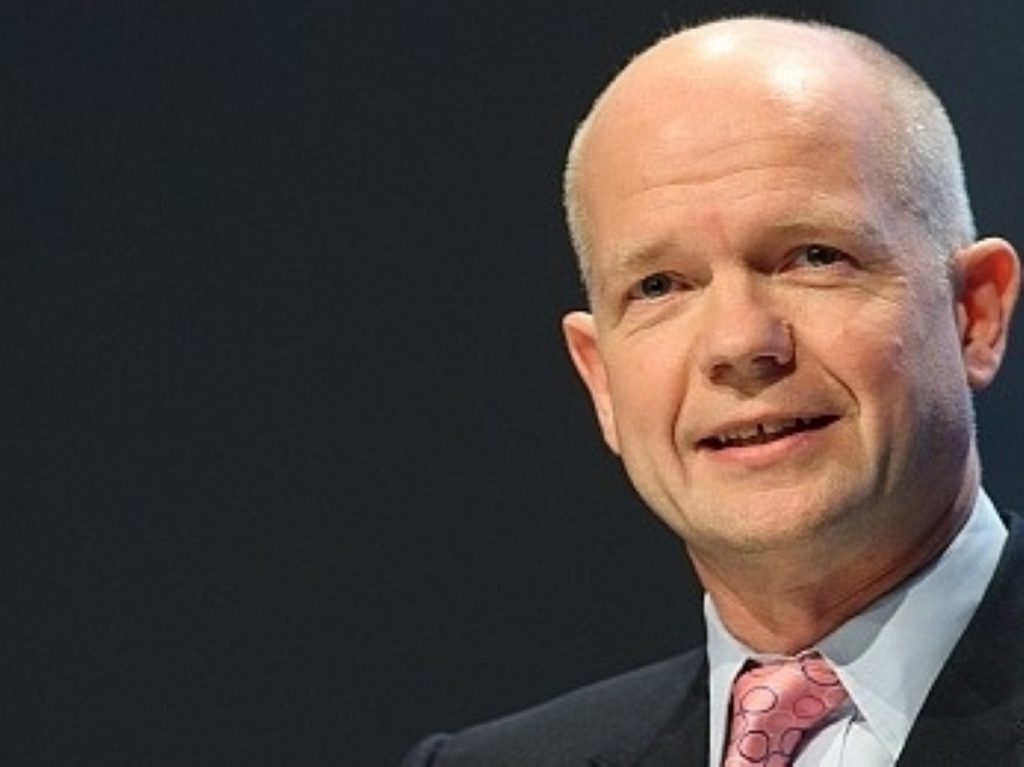Hague lays out post-American foreign policy
By politics.co.uk staff
William Hague has laid out his vision of British foreign policy, in a speech which sees the foreign secretary look out to Europe, Brazil and India rather than the US.
While the speech made no particular mention of American decline in the face of new economic powers, the scant attention paid to the US reveals that the coalition government is intent on finding and consolidating new relationships on the international stage.
Mr Hague focused in particular on Europe, where he demanded more British officials in senior EU posts.


“It is mystifying to us that the previous government failed to give due weight to the exercise of British influence in the EU,” he said.
“They neglected to ensure that sufficient numbers of bright British officials entered EU institutions, and so we now face a generation gap developing in the British presence in parts of the EU.
“As a new government, we are determined to put this right.”
Speaking at the Foreign Office, Mr Hague noted that while the UK constitutes 12% of the EU population, it has just 1.8% of the staff at entry-level positions at the commission.
But Mr Hague also focused on developing relationships with growing economic powers like Brazil, India and China.
“In recent years, Britain’s approach to building relationships with new and emerging powers has been ad hoc and patchy, giving rise to the frequent complaint from such governments that British ministers only get in touch when a crisis arises or a crucial vote is needed,” he said.
“This weakens our ability to forge agreement on difficult issues affecting the lives of millions around the world and overlooks the importance of consistency and personal relationships in the conduct of foreign policy.
“Our new government’s vision for foreign affairs is this: A distinctive British foreign policy that is active in Europe and across the world; that builds up British engagement in the parts of the globe where opportunities as well as threats increasingly lie; that is at ease within a networked world and harnesses the full potential of our cultural links, and that that promotes our national interest while recognising that this cannot be narrowly or selfishly defined.”
Foreign Office ministers should use personal relationships, new technology such as Twitter, and explout the widespread appeal of British culture, to secure their agenda, he argued.
The Premier League, for instance, remains one of Britain’s most important exports, with reports of supporters in Singapore changing their sleeping patterns so they can follow it.
Mr Hague revealed in the speech that he follows the tweets of the foreign minister of Bahrain.
The speech is the first of four keynote speeches on foreign policy, and is being watched carefully by analysts as they gradually appreciate the nature of the coalition government’s foreign policy.
“Conducting the foreign policy of the United Kingdom is not just about making the right decisions on issues that affect us now, but laying the foundations for good decisions for many years to come,” Mr Hague said.
Shadow foreign secretary David Miliband reacted angrily to the speech, sayng Mr Hague needed to “start getting on with his job”.
He added: “The idea that he is going to bring a new dynamic to our relationship with China, when on my last visit as Foreign Secretary I secured a strategic dialogue without compare, is a non-starter.”
Many diplomats, foreign policy experts and Foreign Office civil servants will be gratified to hear Mr Hague’s speech.
Recent years have seen several embassies and consuls closed and a feeling in foreign policy circles that the department was being marginalised.
During the speech mr Hague also confirmed that he expected Afghan security forces to have taken control of their own operations by 2014.

